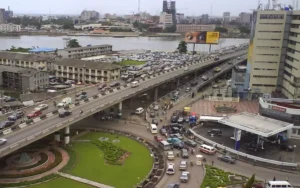
By David Akinmola
The cost of acquiring Point-of-Sale (PoS) terminals in Nigeria has surged by between 30 per cent and 100 per cent over the past two years, further straining small businesses and payment service providers who rely heavily on the devices to serve millions of customers.
Industry operators attribute the rising cost to foreign exchange volatility, higher import duties on electronic devices, and increased demand driven by Nigeria’s growing cashless economy.
According to market checks, the average price of a new PoS machine, which sold for between ₦25,000 and ₦35,000 in 2023, now costs between ₦40,000 and ₦70,000, depending on the brand, model, and connectivity features. High-end terminals with biometric and contactless payment options are priced above ₦100,000, a steep climb from ₦50,000 two years ago.
“The surge in cost is a direct reflection of naira depreciation against the dollar. Most PoS terminals are imported, and with FX trading above ₦1,500/$, acquiring new devices has become more expensive,” said a Lagos-based payment service provider.
The Central Bank of Nigeria (CBN) had in 2012 introduced PoS deployment as part of its cashless policy, and since then, adoption has skyrocketed. The number of deployed terminals rose from about 155,000 in 2017 to over 2.3 million in 2025, according to data from the Nigeria Inter-Bank Settlement System (NIBSS).
However, stakeholders warn that the rising cost of devices could slow the penetration of digital payments, especially in underserved rural communities where agents operate with thin margins.
“PoS agents are the last-mile drivers of financial inclusion. If the cost of terminals keeps rising, new entrants will be discouraged, and some existing operators may exit the market,” said the President of the Association of Mobile Money and Bank Agents in Nigeria (AMMBAN), Victor Olojo.
In addition to cost, operators also grapple with rising maintenance expenses, connectivity challenges, and transaction failures, which erode customer trust.
Financial analysts say unless local production of payment devices is scaled up, the country will remain vulnerable to external shocks that make electronic banking more expensive.
“Developing indigenous capacity for PoS and other payment infrastructure is critical if Nigeria wants to sustain the cashless drive. Otherwise, the gains of the past decade could be undermined,” an analyst at Afrinvest Securities noted.
With the federal government pushing for a $1 trillion economy and deeper financial inclusion by 2030, the affordability of PoS terminals is expected to remain a key policy issue for regulators and industry players.






